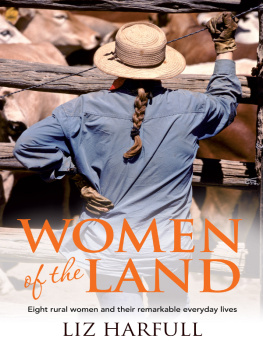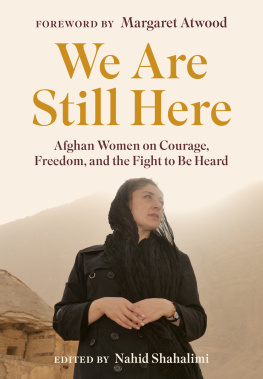The publisher gratefully acknowledges the generous support of the Anne G. Lipow Endowment Fund for Social Justice and Human Rights of the University of California Press Foundation, which was established by Stephen M. Silberstein.
Land of the Unconquerable

Land of the
Unconquerable
The Lives of Contemporary Afghan Women
EDITED BY
Jennifer Heath and
Ashraf Zahedi

University of California Press, one of the most distinguished university presses in the United States, enriches lives around the world by advancing scholarship in the humanities, social sciences, and natural sciences. Its activities are supported by the UC Press Foundation and by philanthropic contributions from individuals and institutions. For more information, visit www.ucpress.edu .
University of California Press
Berkeley and Los Angeles, California
University of California Press, Ltd.
London, England
2011 by The Regents of the University of California
Library of Congress Cataloging-in-Publication Data
Land of the unconquerable : the lives of contemporary Afghan women / edited by Jennifer Heath and Ashraf Zahedi.
p. cm.
Includes bibliographical references and index.
ISBN 978-0-520-26185-3 (cloth : alk. paper)
ISBN 978-0-520-26186-0 (pbk. : alk. paper)
1. WomenAfghanistanSocial conditions21st century. I. Heath, Jennifer. II. Zahedi, Ashraf, 1947
HQ1735.6.L37 2011
305.48891593dc22
2010039318
Manufactured in the United States of America
19 18 17 16 15 14 13 12 11 10
10 9 8 7 6 5 4 3 2 1
This book is printed on Cascades Enviro 100, a 100% post consumer waste, recycled, de-inked fiber. FSC recycled certified and processed chlorine free. It is acid free, Ecologo certified, and manufactured by BioGas energy.
To Nazi Etemadi, Judy Hussie-Taylor,
and Soraya Omar
JKH
To Ashok Mehta
AZ
And for the women of Afghanistan.
May you soon have peace and justice.
Humanity does not gradually progress from combat to combat until it arrives at universal reciprocity, where the rule of law finally replaces warfare; humanity installs each of its violences in a system of rules and thus proceeds from domination to domination.
Michel Foucault
You cannot solve a problem from the same consciousness that created it. You must learn to see the world anew.
Albert Einstein
To be hopeful in bad times is not just foolishly romantic. It is based on the fact that human history is a history not only of cruelty, but also of compassion, sacrifice, courage, kindness. What we choose to emphasize in this complex history will determine our lives.... The future is an infinite succession of presents, and to live now as we think human beings should live, in defiance of all that is bad around us, is itself a marvelous victory.
Howard Zinn
Contents
Acknowledgments
There are many to thank, beginning with our contributorswriters and photographersfor their amazing work. Their talents and scholarship are immeasurable, as is our gratitude. All went out of their way, above and beyond the call of duty, to make this book as fulsome, rich, and enlightening as possible.
In addition, we wish to thank, for information, inspiration, help, support, and/or encouragement over the long and short hauls: The American Institute for Afghanistan Studies, Mahnaz Afkhami, Bernard Amadei, Thomas Barfield, David Barsamian, Sarah C. Bell, Michael Carroll, Sam Chen, Christopher Collom, Jack Collom, Sierra Collom, Elizabeth Colton, Nan De Grove, Susan Edwards, Ghada Kanafani Elturk, Nazi Etemadi, Hafizullah Emadi, Asma Eschen, Katrin Fakiri, Ghulam Feda, Wazhma Frogh, Ellen Geiger, Ashok Gupta, Roxanne Gupta, Shahla Haeri, Najia Haneefi, Matthew Heath, Mary Hegland, Nita Hill, Judy Hussie-Taylor, Danish Karokhel, Marda Kirn, Genevieve and Herbert Leggett, Karen Leggett, Marsha MacColl, Shireen Malik, Linda Mansouri, Valentine Moghadam, Idris Mojaddidi, Senzil Nawid, George and Marija Nez, Soraya Omar, Michael Raulli, Denny Robertson, Naomi Schneider, Sheryl B. Shapiro, Mumtaz Soleman, Rickie Solinger, Nadia Tarzi, Beth Wald, Candace Walworth, Barbara Wilder, Andrew Wille, Michael Wolfe, and so many others.
In peace and gratitude,
Jennifer Heath and Ashraf Zahedi
Introduction
JENNIFER HEATH
On October 7, 2001, the United States and its allies launched an assault against Afghanistan in retaliation for the attacks of 9/11 and removed the Taliban from power. The Sunni Islamist and Pashtun nationalist movement calling itself students or seekers had tyrannized most of the country, especially the women, since 1996.
The 2001 U.S.-led attack began another chapter in the three decadesand countingof relentless fighting endured by the Afghan people, beginning in 1979 with the Soviet invasion. Across the ten-year Soviet war, more than 1 million Afghans were killed; 1.2 million Mujahedin, government soldiers, and noncombatants were disabled; and 3 million (mostly noncombatants) were maimed or wounded. Five million Afghans, one-third of the prewar population, fled to Pakistan and Iran. Another 2 million Afghans were displaced within the country.
The Mujahedin (who President Ronald Reagan labeled freedom fighters) had been armed and supported principally by the United Stateswith ideological and material support provided by Saudi Arabia and Pakistanin order to fight (and win) a proxy war against the Soviet Union. As is well documented, a callexploiting a militant, atypical version of Islamfor Muslim men around the world to join a jihad (holy war) against godless communists, led to what the primary author of this scheme, Carter-era national security advisor Zbigniew Brzezinski, labeled Islamic blowback.ideology against another was, of course, Osama bin Laden. This is an old, elaborate story, much told, but it is essential to repeat briefly here, because the U.S.-led invasion tends to obfuscate the fact that no Afghan was responsible for the tragedy of September 11, 2001, yet all Afghans have been paying for it.
The Soviets left Afghanistan in 1989, although they continued to support the regime of Najibullah in Kabul, while the United States, working through Pakistan with Saudi Arabian aid, continued supporting a coalition of Mujahedin, called the Afghan Interim Government. It was the first phase of a long civil war. In 1992, declaring an official end to the Cold War, the United States under George H. W. Bush and the USSR under Boris Yeltsin agreed to conclude military and financial aid to Afghanistan, thus introducing the next phase of its civil war, now between Mujahedin factions vying to fill the power vacuum, bringing fresh horrors. Many women report that this four-year periodvirtually ignored by the Western mediarivaled, often outdid, the subsequent Taliban era for barbarism and oppression, with rapes, kidnappings, and forced marriages, along with relentless street fighting, looting, and the launching of rockets into quiet neighborhoods, blowing buildings to rubble, and maiming and killing innocent bystanders. The United States, instead of seizing an opportunity to rebuild Afghanistan, had walked away.
The students, meanwhile, were quietly massing and training in Pakistan. In 1995, they took Herat and in 1996 conquered Kabul, then spread out across most of the rest of the country. Many welcomed them as liberators and bringers of peace. Various Mujahedin fled north, where they formed the United Islamic Front for the Salvation of Afghanistan, or Northern Alliance. It is impossible in this space to give more than a highly abridged version of the twisted geopolitics that have affected Afghanistan across the years. Journalists such as Peter Marsden (
Next page




